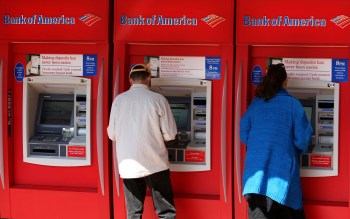One of the issues I’ll be talking about on the podcast today is whether the big banks need to be dismantled and reorganized. As a supplement to that discussion, I wanted to point out a good debate between two sharp people — former NY Attorney General Elliot Spitzer and economist Tyler Cowen.
They appeared on the public radio show, The Takeaway. Spitzer’s view:
Let us finally take a hard look at a system of financial concentration that became the policy of this government 10 or 15 years ago where banks were allowed to merge so they became these enormous structures. Let us finally say you cannot be that big. You should not be that interconnected, which is the word that is used these days basically the same thing. You can break them down on regional lines; break them down on business lines. You can basically say you will not be guaranteed next time.
Cowen’s opinion:
I don’t think making them smaller is the answer. Lehman was not that big. And if you go back to Long-Term Capital Management in 1998, we bailed them out and they were a very small firm. So I dont think shrinking banks is the answer. The most we can do is have some very simple restrictions on leverage and send the message that bailouts will not be automatic.
On After the Bell, I talk to Allan Sloan of Fortune, and he’s in Spitzer’s camp — break ’em up. He just doesn’t think it’ll happen. What do you think?
Here was another interesting exchange between Spitzer and Cowen:
SPITZER: I hate to jump in, but years ago when I was Attorney General, I said that I would not trust the SEC to do a house closing for me. And now, after we read the report about Madoff and back when I said that of course people said you’re being too edgy. The fact of the matter is the regulatory system utterly failed. It was captured by the industry. You had bankers and when you look at what they did and you look at the AIG bailout and you’re right about the counter parties. AIG got 80 billion dollars, went straight through to the counter parties who were paid 100%. Nobody to this day has explained why Goldman Sachs got a check for $12.9 billion. 100% of the counter party risk that it supposedly had taken. Why? Goldman says it wasn’t at risk. Why give them the money? Government bailed out. The Fed failed. The SEC failed. Who do we trust at this point? Very few people in the federal government.
COWEN: I would just note that consumers were part of the problem. That many of us were caught up in the euphoria and the bubble and many people thought they could take on more debt and buy any house they want and put down maybe zero money. And its easy enough to blame the banks, the regulators; all those criticisms make sense. But the problem was more systemic, was an overall excess of optimism and complacency in the entire economy, including consumers.
There’s a lot happening in the world. Through it all, Marketplace is here for you.
You rely on Marketplace to break down the world’s events and tell you how it affects you in a fact-based, approachable way. We rely on your financial support to keep making that possible.
Your donation today powers the independent journalism that you rely on. For just $5/month, you can help sustain Marketplace so we can keep reporting on the things that matter to you.


















